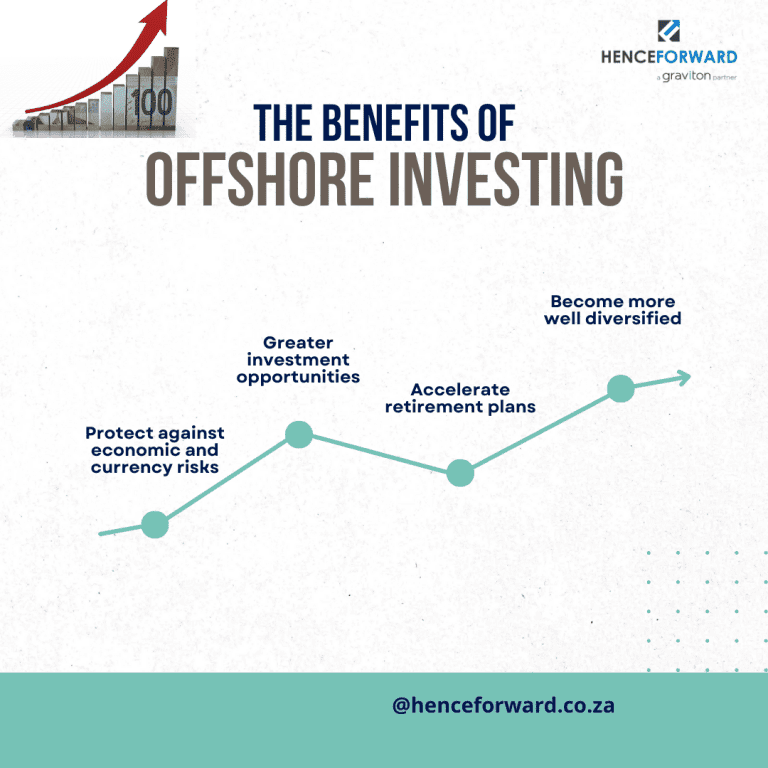Checking out Just How Investing Off Shore Works: A Comprehensive Overview
Spending offshore provides a complex landscape of difficulties and chances. Recognizing the various kinds of overseas accounts is essential for any person considering this course. The benefits, consisting of improved personal privacy and property security, are significant. Lawful and tax obligation effects call for cautious focus. As capitalists seek to optimize their profiles, the steps to develop a practical overseas investment method come to be vital. What are the crucial elements that one must browse to succeed in this venture?
Understanding Offshore Accounts and Their Types
What drives individuals and companies to consider overseas accounts? The allure of financial personal privacy, possession protection, and possible tax obligation benefits usually brings in the attention of those seeking to manage their wealth extra tactically. Offshore accounts, typically developed in international territories, been available in numerous kinds. Individual accounts provide to individual requirements, supplying solutions like cost savings, financial investment, or retirement planning. Business accounts, on the other hand, serve business wanting to facilitate worldwide purchases, improve personal privacy, or maximize tax obligation obligations. Count on accounts give an extra layer of defense, enabling people to guard their properties for future recipients. Each kind of offshore account provides distinct functions, frequently influenced by the governing atmosphere of the host nation. Understanding these differences is important for companies and individuals, as the selection of account kind can notably impact their monetary techniques and conformity with global laws.
Advantages of Offshore Spending
While many financiers seek opportunities to expand their portfolios, offshore spending presents distinctive advantages that can improve economic growth and security. One remarkable benefit is the potential for property protection. Offshore accounts can secure investments from political instability or financial slumps in the capitalist's home nation. Additionally, overseas investments frequently supply access to worldwide markets, allowing financiers to use arising economic climates and markets that might not be offered domestically.Another considerable advantage is tax obligation effectiveness. Many offshore territories supply favorable tax obligation routines, which can minimize tax obligation obligations and enhance general returns. Overseas investing can boost privacy, as specific jurisdictions impose rigorous privacy laws.Lastly, overseas accounts can promote wide range management methods by giving a bigger array of financial investment options, consisting of different properties such as real estate and products. Collectively, these benefits make offshore investing an appealing selection for those aiming to enhance their economic portfolios.

Legal and Regulatory Factors to consider
Guiding with the governing and lawful landscape of offshore investing requires mindful focus and understanding. Investing Off Shore. Investors must browse an intricate web of regulations that vary considerably from one territory to another. Compliance with neighborhood policies is vital; failing to do so can cause extreme charges, including penalties and jail time. Furthermore, knowing the legal structures governing foreign financial investments is essential for assuring the protection of properties and preserving functional legitimacy.Key factors to consider consist of recognizing the governing demands for establishing overseas entities, such as companies or trusts, and adhering to anti-money laundering (AML) and know-your-customer (KYC) policies. Capitalists should additionally recognize reporting responsibilities in their article home country, as lots of nations need disclosure of overseas holdings. Involving with attorneys experienced in offshore investment can provide invaluable advice, helping investors to alleviate dangers and safe conformity with suitable laws and policies while maximizing their financial investment possibility

Tax Obligation Effects of Offshore Investments
Comprehending the legal and governing considerations of overseas investing naturally leads to an assessment of the tax ramifications connected with these investments. Offshore investments can use significant tax benefits, consisting of lowered tax prices and the possibility for tax deferral. However, investors have to navigate complex tax policies in their home nations, as lots of territories require taxpayers to report foreign earnings and assets.For united state citizens, the Foreign Account Tax Compliance Act (FATCA) mandates the coverage of overseas accounts, while various other nations have similar needs. Failing to conform can lead to serious charges. Furthermore, specific offshore funds may go through unique tax treatments, such as Passive Foreign Financial Investment Company (PFIC) policies, complicating investment strategies.Investors need to consider speaking with tax obligation specialists to comprehend implications certain to their circumstances and guarantee conformity with both worldwide and domestic tax obligation regulations, eventually making the most of the advantages of their overseas investments while minimizing risks.
Steps to Get Began With Offshore Spending
Numerous investors seeking to diversify their portfolios turn to offshore investing as a practical choice. To start, one must perform comprehensive research on prospective overseas territories, thinking about aspects such as regulatory setting, taxation, and investment possibilities. Investing Off Shore. After choosing a suitable place, financiers must develop an offshore account, which generally calls for documents confirming identification and source of funds.Next, financiers usually involve with a financial consultant or an overseas investment company acquainted with neighborhood laws and market characteristics. This collaboration can help in crafting a tailored investment technique that aligns with private goals and run the risk of tolerance.Once the approach remains in place, capitalists can proceed to pick details assets or funds for investment, guaranteeing they assess efficiency and risks on a regular basis. Maintaining compliance with both neighborhood and home nation guidelines is essential for successful offshore investing, calling for continuous diligence and possibly regular consultations with legal experts.

Often Asked Questions
How Do I Choose the Right Offshore Jurisdiction?
Picking the ideal offshore jurisdiction involves evaluating elements such as regulatory atmosphere, tax advantages, political stability, and simplicity of working. Researching each option extensively assures educated decisions that line up with individual financial investment objectives and take the chance of tolerance.
What Sorts Of Possessions Can I Hold Offshore?

Exist Dangers Linked With Offshore Investing?
The dangers associated with overseas investing consist of lawful complexities, governing modifications, currency changes, and possible political instability. Investors need to very carefully examine these variables to reduce my response threats and guarantee compliance with international laws and regulations.
How Can I Gain Access To My Offshore Finances?
To accessibility overseas funds, individuals usually need to call their banks, offer required recognition and paperwork, and comply with established methods for fund transfers, making sure conformity with both worldwide and local regulations governing offshore investments.
What Are Typical Misconceptions About Offshore Accounts?
Usual misconceptions concerning offshore accounts consist of ideas that they are entirely for tax evasion, lack of regulation, or available to the rich. In truth, they can be legit economic tools for diverse people. In addition, overseas investments frequently offer access to global markets, permitting financiers to touch right into arising economic situations and markets that might not be readily available domestically.Another substantial benefit is tax performance. Offshore investing can enhance personal privacy, as certain territories impose stringent privacy laws.Lastly, overseas accounts can promote wealth monitoring strategies by giving a bigger array of investment options, including alternative assets such as genuine estate and assets. Comprehending the regulatory and legal considerations of overseas investing naturally leads to an examination of the tax obligation implications linked with these financial investments. Offshore financial investments can provide considerable tax benefits, consisting of reduced tax obligation rates and the possibility for tax obligation deferment. After selecting a suitable location, financiers need to develop an offshore account, which commonly needs paperwork verifying identity and source of funds.Next, financiers usually engage with an overseas investment or a monetary consultant firm acquainted with regional regulations and market dynamics.